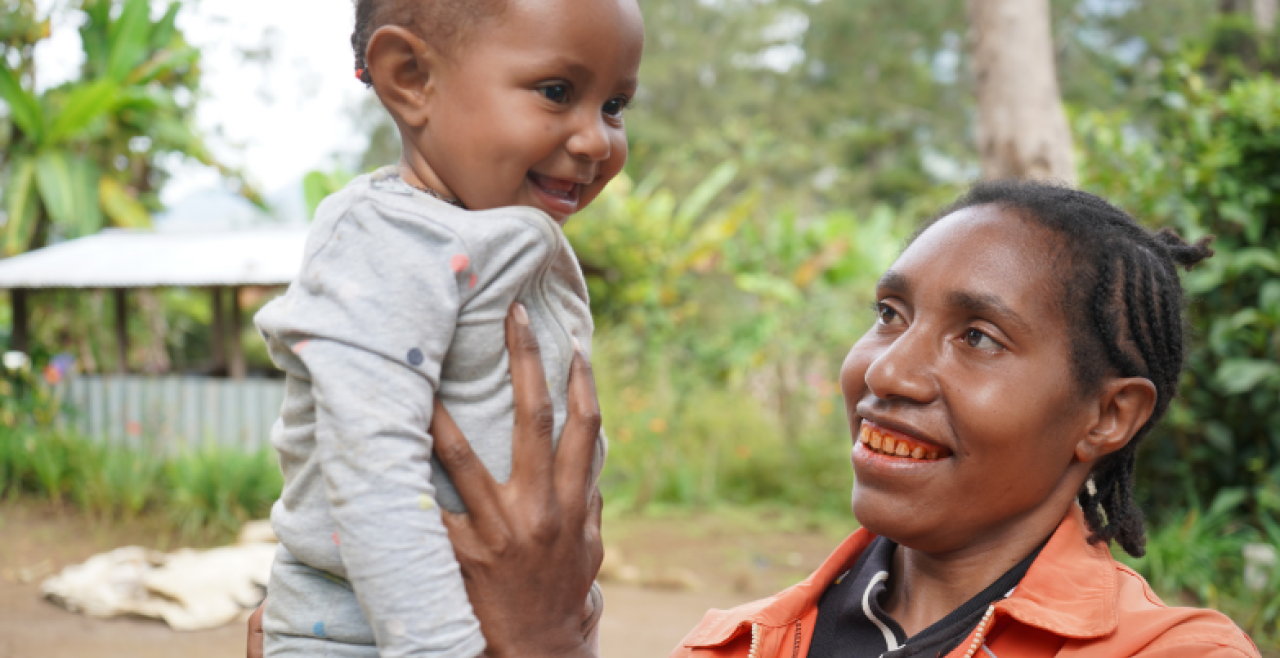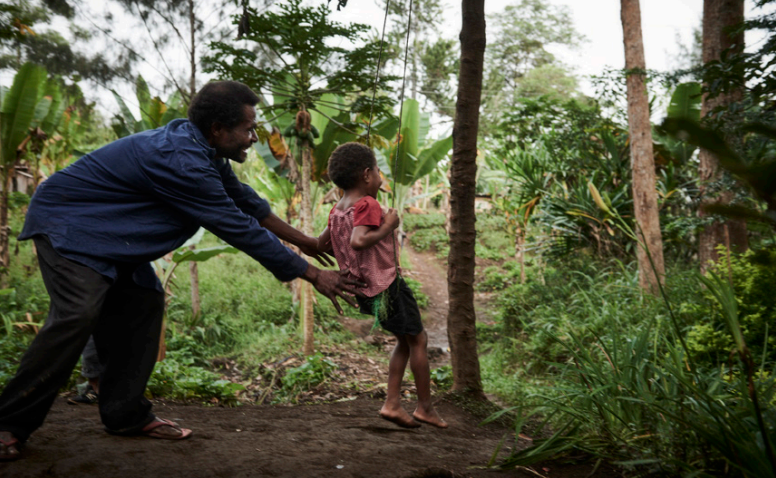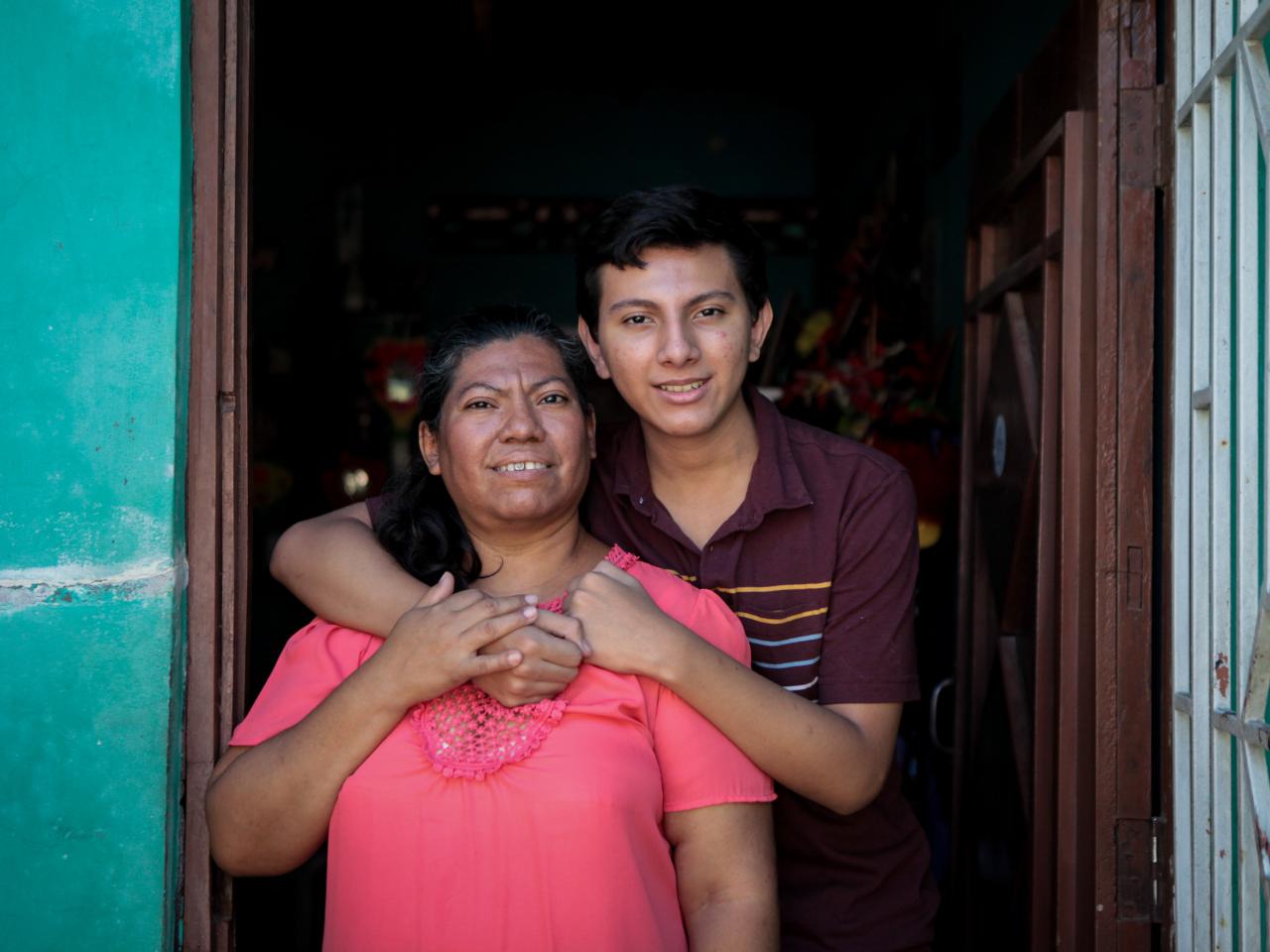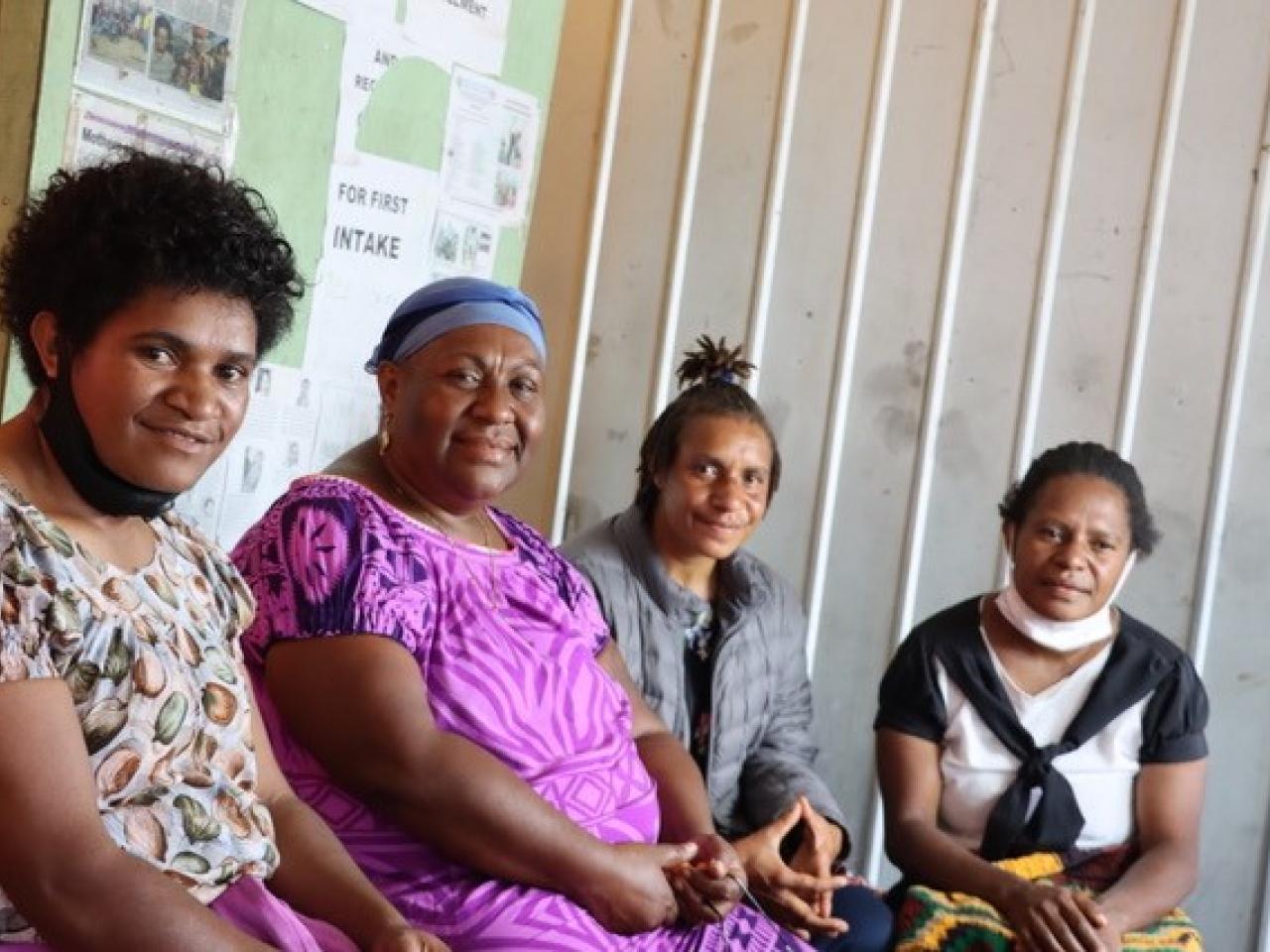Positive parenting: Reducing violence in the home for a better future in Papua New Guinea

In Papua New Guinea, Spotlight Initiative through UNICEF engaged around 50,000 parents and local partners to break the cycle of family violence by reducing children’s exposure to violence. The Initiative supported parents through a new programme, Parenting for Child Development (P4CD).
Often, intimate partner violence and violence against children can happen at the same time, but they are too often treated as separate issues.
Family violence is an experience all too common for children in Papua New Guinea. In 2019, 27 per cent of parents or caregivers used physical violence as a punishment or disciplining measure. Over 50 per cent called their child ‘lazy’ or ‘stupid’ or used other demoralizing phrases, and 66 per cent regularly shouted or screamed at their child. Women also experience high levels of violence: 63 per cent of women married or living with a partner have experienced some form of violence since the age of 15. The highest levels of violence occur against women who are divorced, separated or widowed (70 per cent).
Intimate partner violence and violence against children have common causes, patterns and consequences, including societal tolerance for violence. Often, intimate partner violence and violence against children can happen at the same time, but they are too often treated as separate issues. Because of this, the UNICEF Spotlight Initiative team highlighted family violence as a focus area in Papua New Guinea, and a pathway for eliminating violence against women and girls in the country.
Breaking the cycle
A community-based programme, P4CD was developed jointly by UNICEF and the Menzies School of Health Research Centre for Child Development and Education. P4CD was designed in partnership with civil and faith-based organizations to incentivize community ownership of the programme. Targeting the most rural areas of the country, it is based on research conducted with the communities themselves focusing on what they need most. Community dialogues contributed to a shared understanding that reducing children’s experiences of violence will benefit their health and development, and potentially break the cycle of family violence.
"The most important lesson was how to manage my emotions... now I can control myself. I tell my wife I have to leave the room; I go for a walk… and then I cool down." - Training participant
With the support of the governments of Australia and Papua New Guinea, a pilot project was launched in the Western Highlands and Madang in Papua New Guinea. Mothers and fathers of children aged 3–10 years old (including teenage and foster parents) participated in six workshops, learning about child development from birth to early childhood. The sessions helped them develop an understanding of children’s behaviour, learn positive parenting strategies and develop an awareness of emotions and strategies for emotional self-control. Parents then applied this knowledge and skills to problem-solve effectively and communicate better with their families.
"The most important lesson was how to manage my emotions. Sometimes I get angry with my children," said one participant. "I sometimes yell at them, but now I can control myself. I tell my wife I have to leave the room; I go for a walk… and then I cool down."
P4CD has since expanded and formed new partnerships with faith-based and civil society organizations. Partnerships with the country’s community networks of churches are seen as a critical part of the programme’s sustainability. In Papua New Guinea, churches can mobilize high levels of moral commitment and retain participation. Therefore, P4CD is delivered by members of each target community who volunteer their time to promote the programme and run workshops for groups of parents. They are guided and supported by team leaders (also from the community) who oversee data collection, the successful completion of activities, and parents’ responses to the activities. Each of the six workshops focuses on a topic that helps parents understand phases of children’s development from 0 to 9 years, and adopt positive practices to handle each phase of their life.
Measuring impact
The post-activity study, conducted three months after the final session, found that 76 per cent of those who participated confirmed that they do not hit their child with a belt or a hard object. Most participants also reported not engaging in neglectful activities (such as giving their child silent treatment). Fathers exposed to the programme experienced a key turning point by gaining a newfound sense of responsibility and are spending more time with their children. The majority (81 per cent) of fathers confirmed playing games with their children, spending more time with them and teaching them positive behaviours.
Parents who participated in the programme reported experiencing less violence by their spouse, and increased confidence in their ability to care for their children.
The P4CD programme has also contributed to a reduction in intimate partner violence and has strengthened communication skills. Evaluations showed that 56 per cent of participants reported that their spouse does not use violence towards them anymore. Further, parents who participated in the programme reported experiencing less violence by their spouse, and increased confidence in their ability to care for their children, along with significant increases in family well-being overall. Most women (66 per cent) and men (71 per cent) confirmed that after participating in P4CD training, they now talk things through when they disagree with their partner.
UNICEF Papua New Guinea continues to use the P4CD programme to educate parents on healthy parenting techniques and reducing violent discipline within the home, and as a tool to prevent domestic violence. Working to institutionalize the programme, UNICEF aims to roll it out nationwide and further encourage parents to have healthy relationships with their children and to be advocates in the prevention of violence against women and children.
Originally published in 'Together for Change: Documenting the fight to end violence against women and girls in the Pacific, the Caribbean and Central Asia'.



